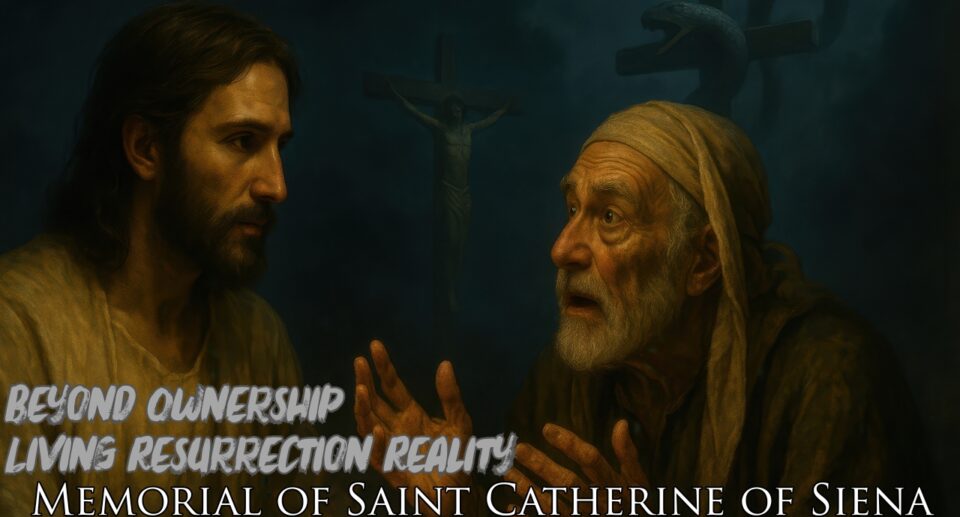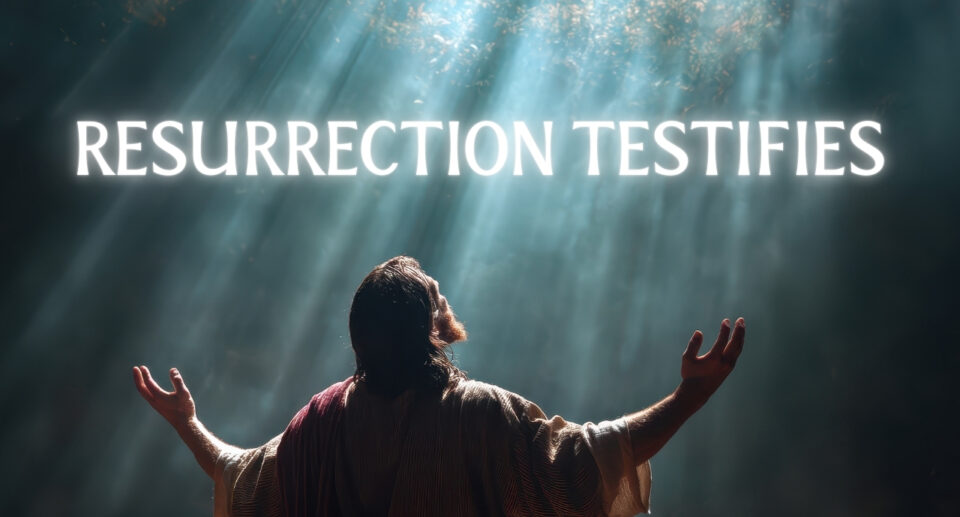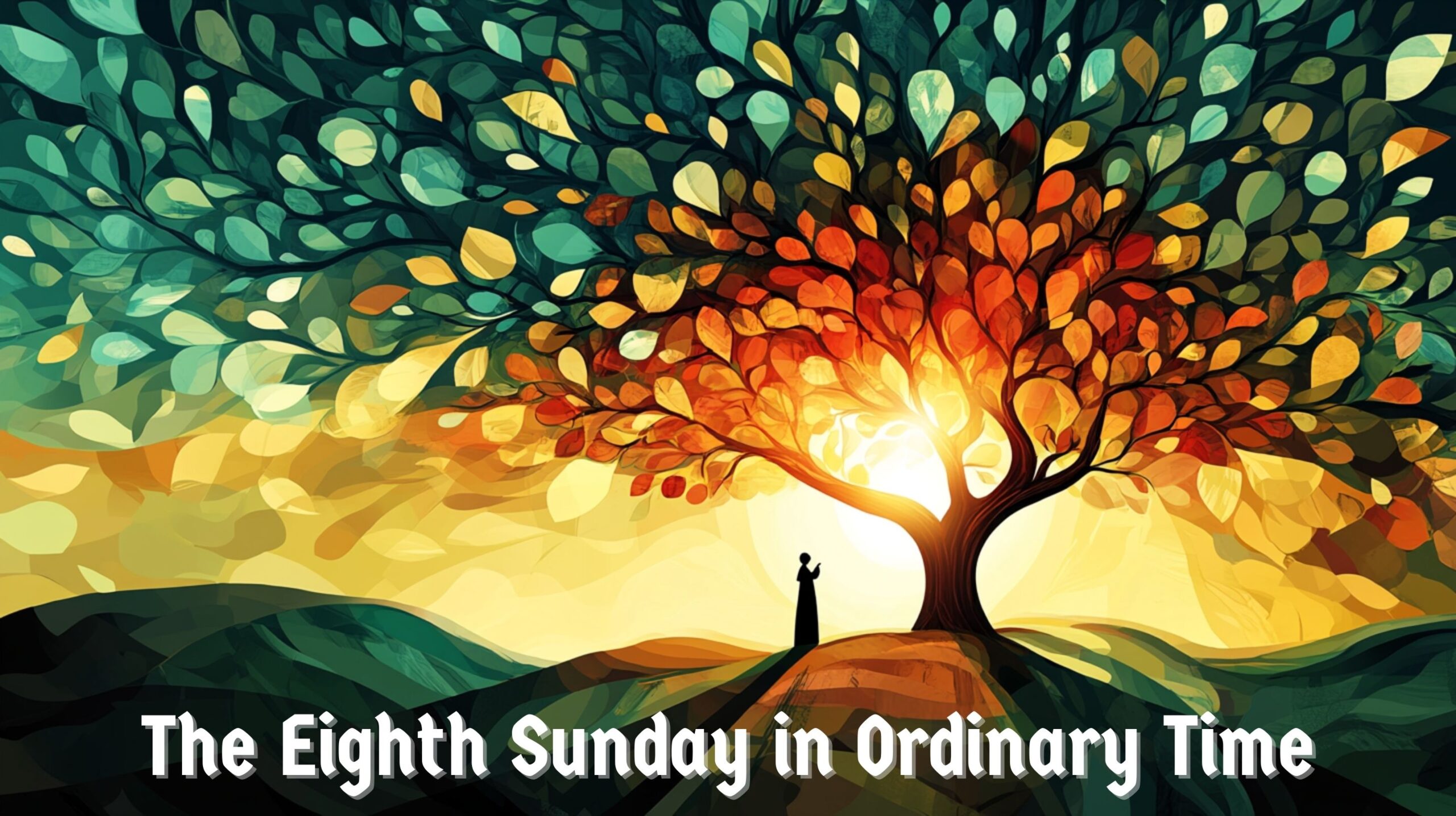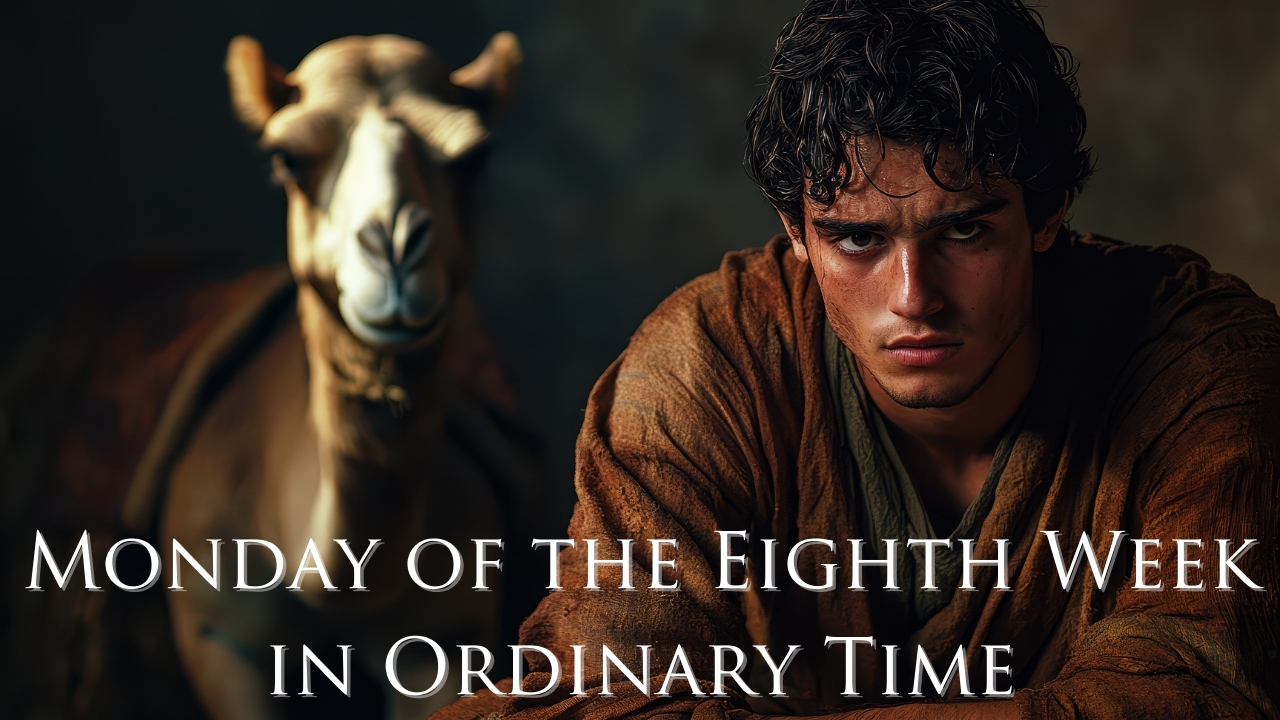Light and Liberation: When God’s Love Breaks Through | Daily Readings | April 30, 2025
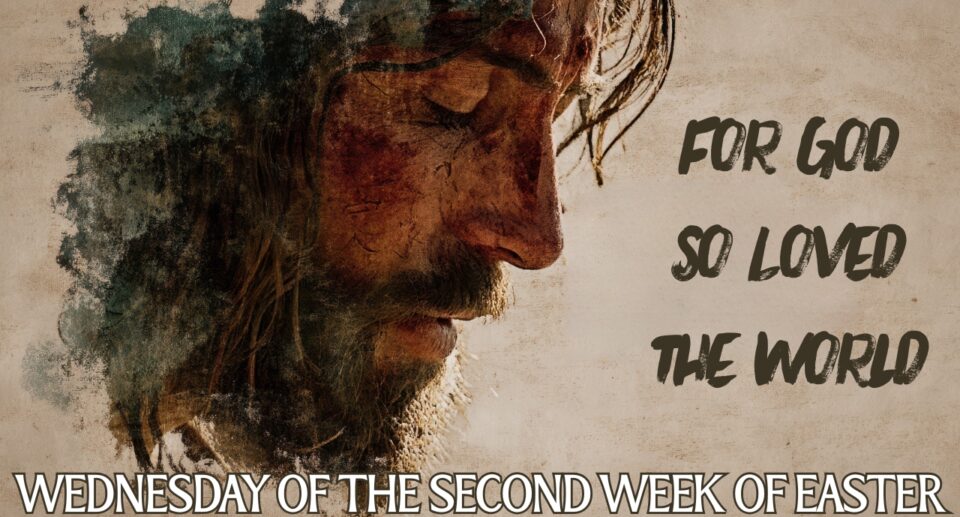
Prison doors mysteriously open. Guards remain unaware. And the freed apostles return to the very place of danger! Discover how this extraordinary moment in Acts 5 connects with Jesus’ revelation of God’s love in John 3:16, showing how divine disruption breaks through our limited frameworks.
Through this reflection, you’ll discover:
- Why the apostles’ return to the temple courts reveals the true nature of freedom
- How God consistently produces results human systems cannot explain
- What makes divine light threatening to established frameworks
- Where similar disruptions might be occurring in your own life
Readings covered: Acts 5:17-26; Psalm 34:2-3, 4-5, 6-7, 8-9; John 3:16-21
Timeline: 00:00 Introduction 00:45 First Reading 03:30 Psalm Response 05:15 Gospel Reading 07:40 Reflection 18:15 Closing Prayer
Perfect for anyone feeling constrained by limited perspectives, struggling with unexpected disruptions, or seeking to understand the deeper purpose of liberation in their lives.
#CatholicDailyReadings #DivineLove #HeavenBreaksThrough
Light and Liberation: When God’s Love Breaks Through
“For God so loved the world…”
These familiar words hide a radical truth. In an age when most expected God to condemn the world, Jesus declares divine love for it instead. The Creator’s disposition toward creation isn’t disgust but devotion. The cosmic stance isn’t judgment but generous self-giving.
This revelation shatters religious expectations as thoroughly as the angel shattered prison locks.
Consider the scene in Acts 5: The apostles imprisoned for speaking about resurrection—a reality the Sadducees rejected as impossible. Their theology couldn’t accommodate the idea of bodies rising from death. Their framework had no room for continued existence beyond the grave.
Then mysteriously, inexplicably, the prison doors swing open. Guards remain in place. Locks stay secure. Yet somehow the cells stand empty.
When morning comes, the authorities discover the apostles teaching in the most public, visible place possible—the temple courts. These men weren’t cowering in fear but boldly proclaiming the very message that got them arrested.
What connects these readings? Both reveal divine disruption of human limitations.
In John 3, God disrupts limited understanding of divine purpose. The prevailing expectation wasn’t cosmic love but cosmic judgment. Yet Jesus reveals God’s mission as salvation rather than condemnation.
In Acts 5, God disrupts physical limitations. Locked doors cannot contain divine purpose. Human authority cannot silence heaven’s message. The apostles’ liberation wasn’t merely physical freedom but commissioning for bolder witness.
The religious leaders faced a profound dilemma. Their understanding of reality—both theological and practical—was being systematically dismantled. Angels that shouldn’t exist (according to their theology) had apparently freed prisoners that should have remained confined (according to their authority). And these freed prisoners weren’t behaving according to expected patterns of self-preservation.
We face similar disruptions whenever divine reality breaks through our limited frameworks. Like prison doors swinging open without human assistance, certain experiences defy our neat explanations. Like apostles standing boldly where they should have been cowering, some moments of courage make no logical sense. Like hearing that God loves what we expected God to condemn, grace sometimes appears where we anticipated judgment.
These disruptions aren’t peripheral to faith but central to it. Christianity isn’t about maintaining control but surrendering to divine disruption. It’s not about fitting God into our systems but allowing our systems to be shattered and reconstructed around divine revelation.
“Light has come into the world, but people loved darkness instead of light.” This isn’t merely about moral preference but about our resistance to having frameworks disrupted. Light doesn’t just expose what’s hidden—it completely changes how we see everything. The temple authorities couldn’t adjust their perception to accommodate empty cells and teaching apostles. Their framework couldn’t bend enough to incorporate this new evidence.
Our Psalm reveals the proper response to divine disruption: “I sought the LORD, and he answered me and delivered me from all my fears.” Rather than clinging to existing understanding, the psalmist embraces divine intervention that reshapes reality. Rather than hiding in fear, he proclaims: “O taste and see that the LORD is good.”
The angel’s command to the apostles echoes this invitation: “Go and stand in the temple area and tell the people everything about this life.” Not partial truth that fits existing frameworks. Not watered-down message that maintains security. Everything about this life—this new reality where resurrection redefines what’s possible.
The apostles’ response demonstrates authentic liberation. Freedom isn’t primarily escape from difficulty but empowerment for purpose. Their liberation didn’t lead to self-protection but to more courageous witness—exactly when human logic would dictate laying low.
Throughout history, similar disruptions continue. Corrie ten Boom hiding Jews in her home while German soldiers searched the premises. Martin Luther King Jr. facing police dogs with prayer rather than violence. Mother Teresa embracing the untouchables of Calcutta when society said to avoid them. Each represents divine disruption of expected behavior, heavenly light breaking into conventional darkness.
In our lives, such disruption often comes when we’re most invested in control. The cancer diagnosis that reshapes priorities. The financial collapse that reveals what truly matters. The relationship breakdown that exposes what we’ve been avoiding. These aren’t divine punishments but invitations to expanded understanding—angels unlocking doors we’ve kept securely fastened.
“Everyone who does evil hates the light.” Not because light condemns them, as Jesus explicitly states, but because light disrupts their carefully maintained frameworks. Disruption feels threatening precisely because it challenges the systems we’ve built to create security.
Yet the apostles discovered something remarkable: standing in the place of greatest vulnerability—the public temple courts where they could easily be rearrested—they experienced not greater danger but greater power. Their liberation wasn’t from something but for something. Their freedom carried purpose.
The authorities who imprisoned them couldn’t comprehend this pattern. Their entire system was based on control through fear, yet here stood people who had somehow moved beyond fear’s grip. The officials can only sputter in confusion: “Yet here they are, standing in the temple courts!”
This bewilderment reveals the most profound truth in these readings: divine love consistently produces results that human systems cannot explain. Prisoners returning to the place of their arrest? Incomprehensible without understanding divine purpose. God loving a world worthy of condemnation? Inexplicable without grasping divine character. Light coming not to condemn but to save? Unfathomable without embracing divine intention.
The disruption continues today whenever we allow divine light to penetrate our darkness, whenever we permit angelic intervention to unlock our secure prisons of certainty, whenever we receive liberation not as escape from responsibility but as commissioning for bolder witness.
For God so loves the world still—not with sentimental affection but with disruptive, prison-breaking, framework-shattering devotion that consistently produces what human systems cannot explain and human authorities cannot control.
The invitation stands: Will you allow your certainties to be disrupted by divine love? Will you permit your secure prisons of understanding to be unlocked by angelic intervention? Will you use your liberation not for self-protection but for bolder witness?
For when heaven truly invades earth, even the most secure locks cannot hold. And when divine light truly penetrates human darkness, even the most entrenched systems must eventually give way.

